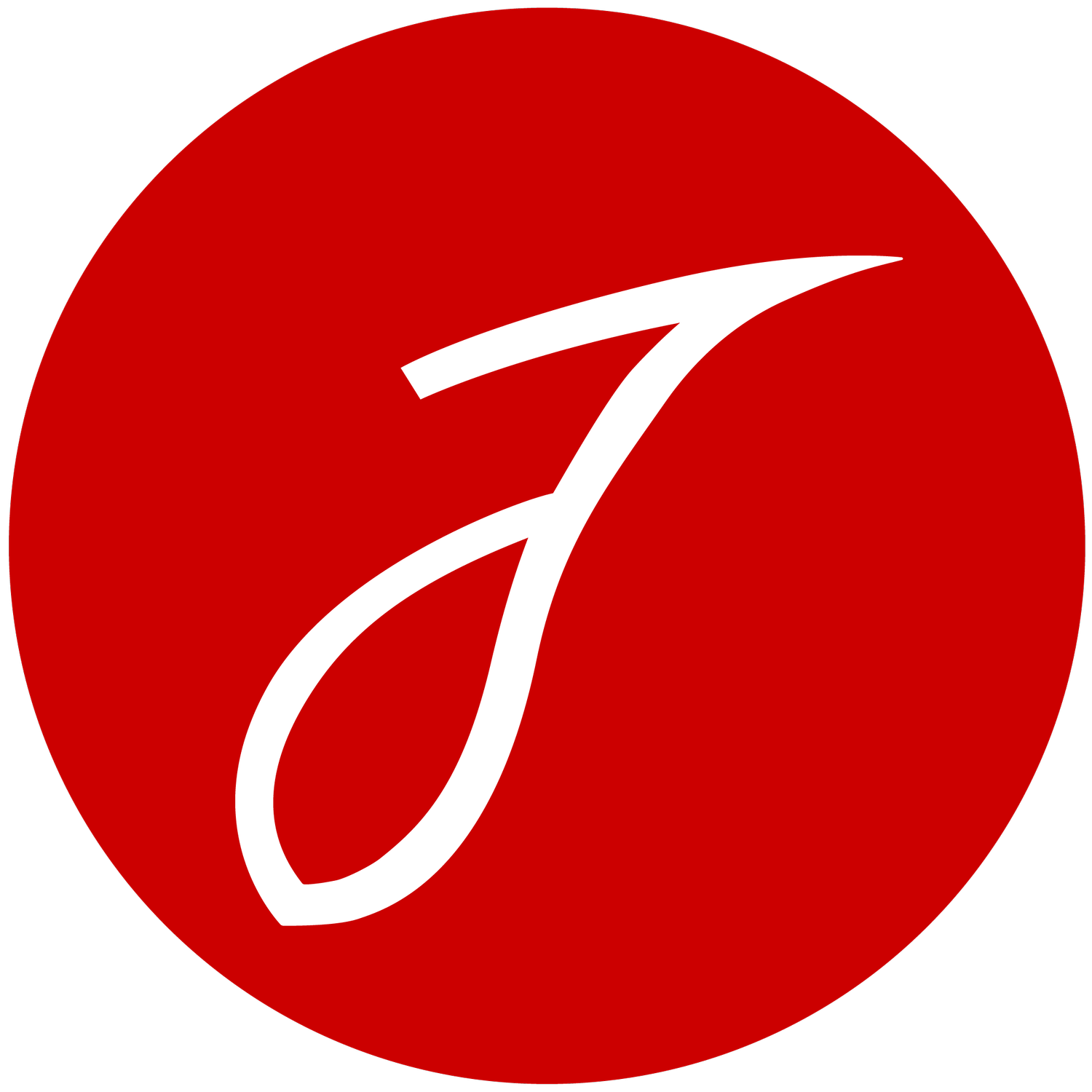My 2021 Playbook - Lessons Learned, Tips, Favorites, and Goals for the Year Ahead
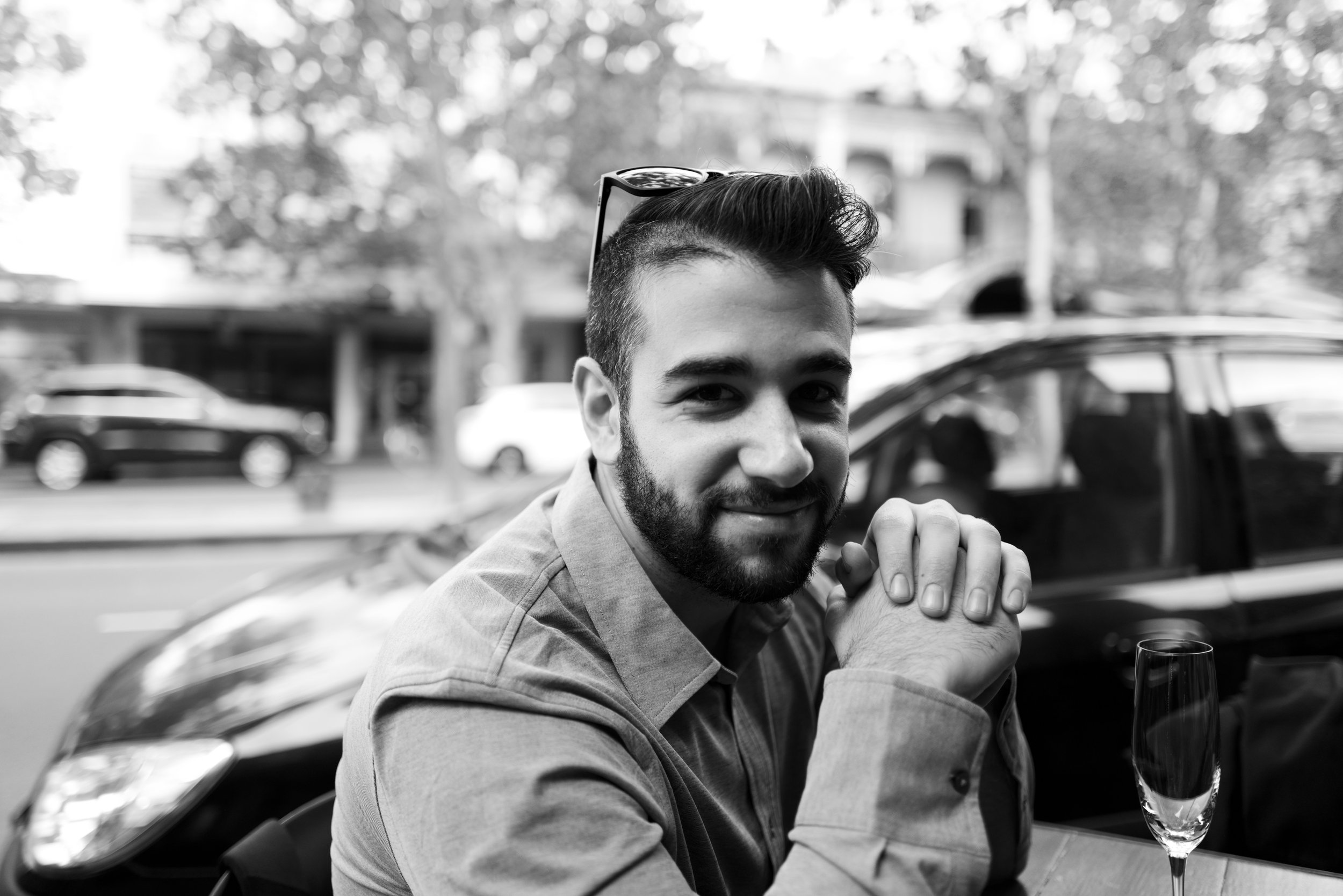
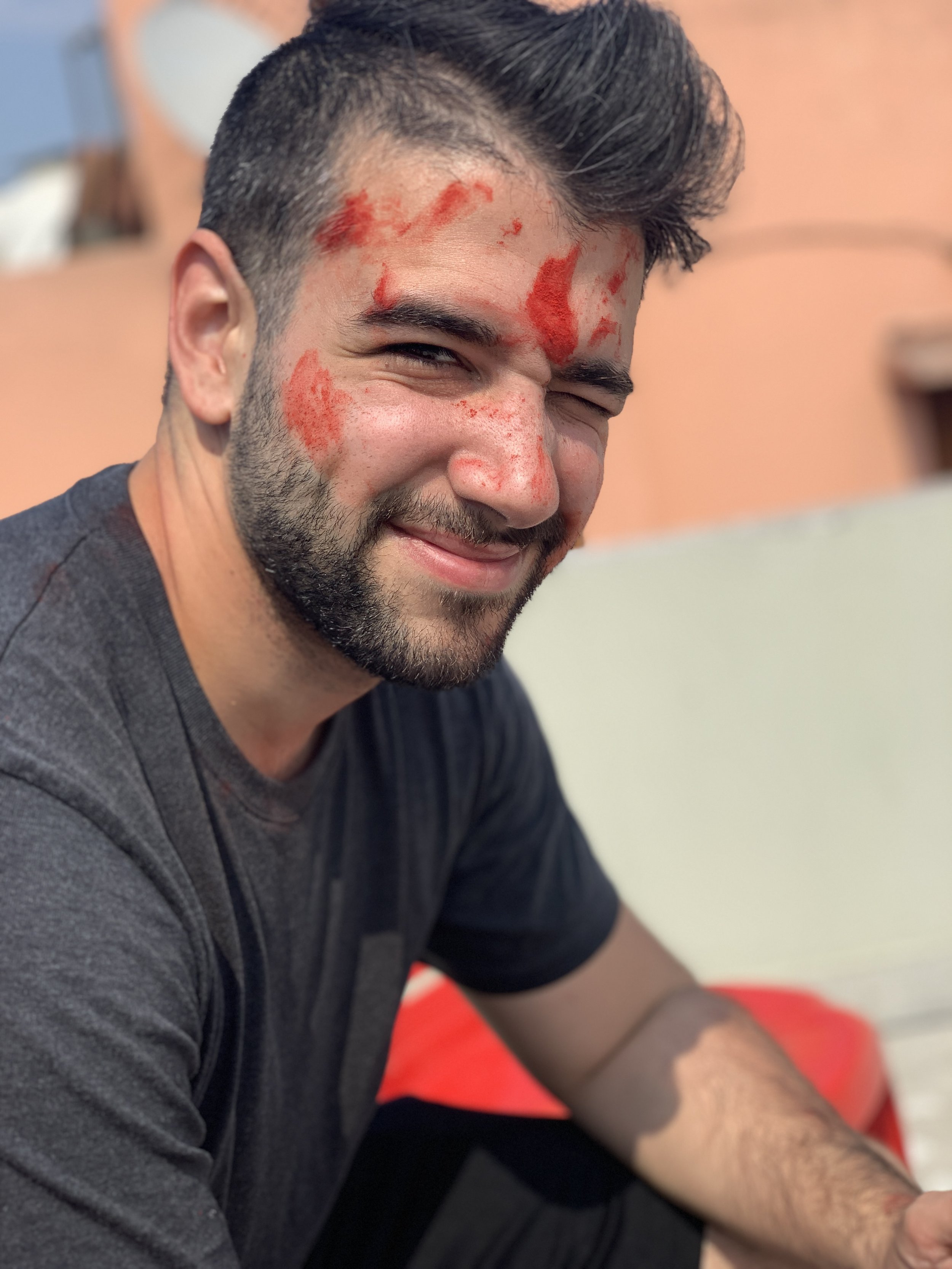
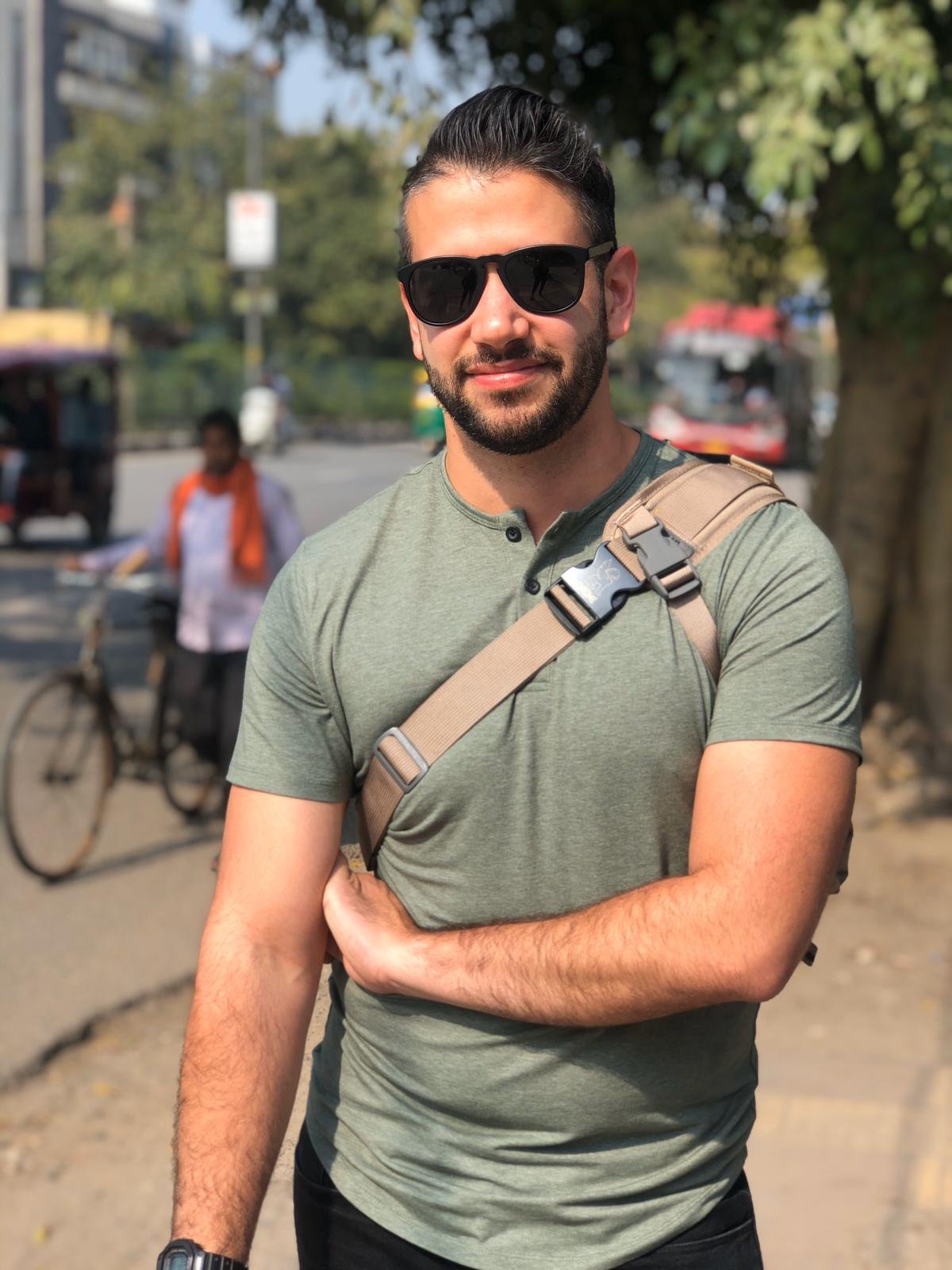
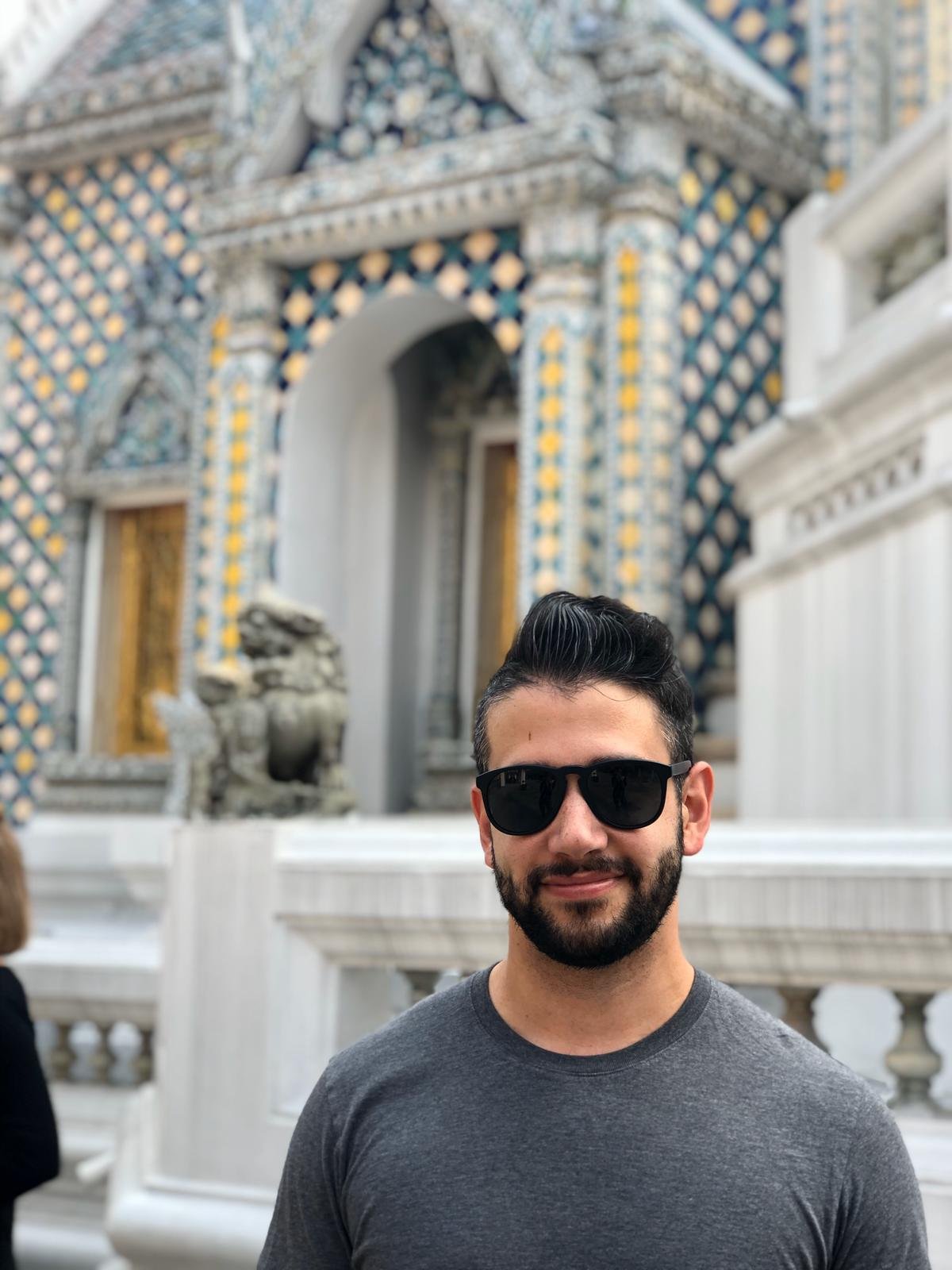
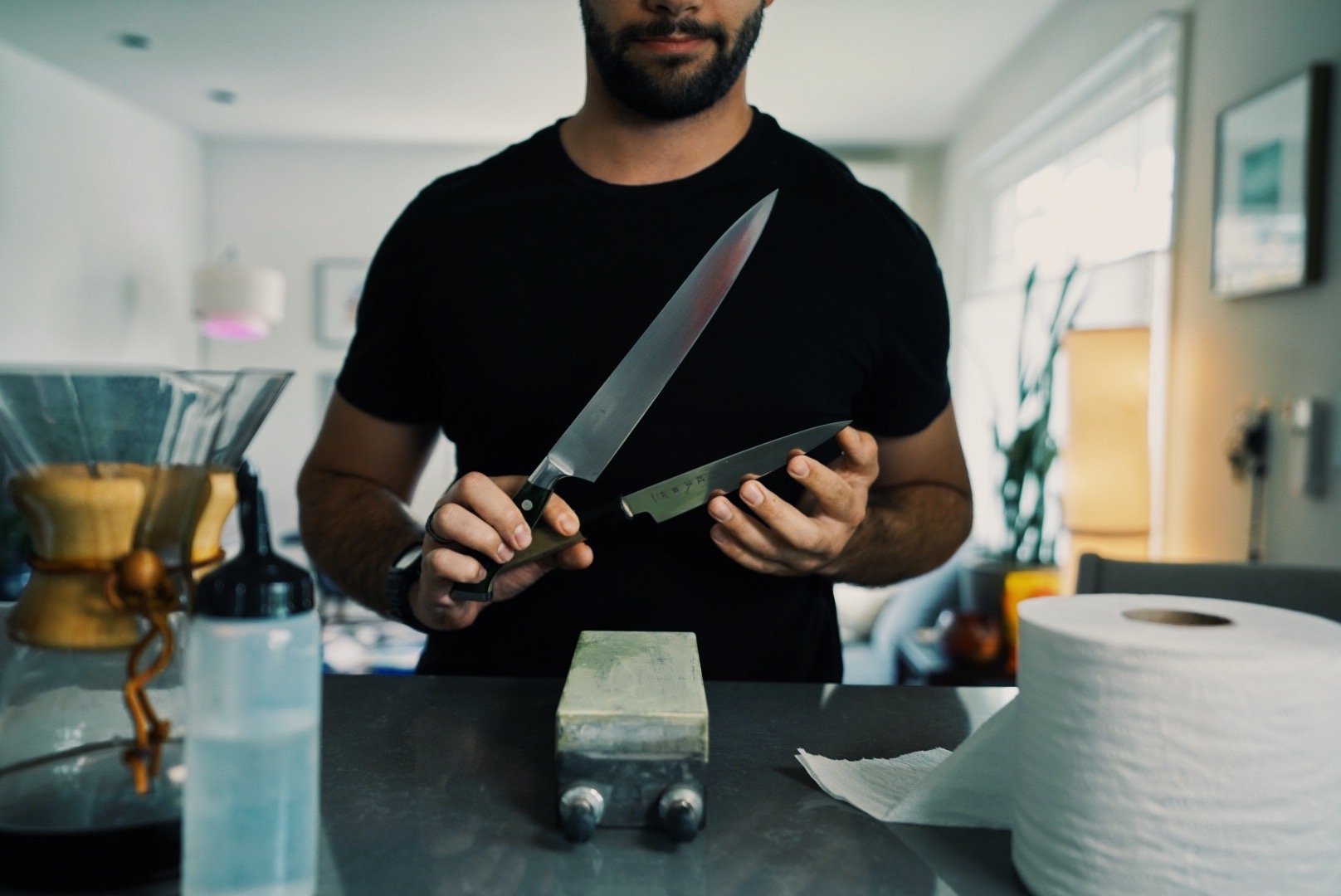
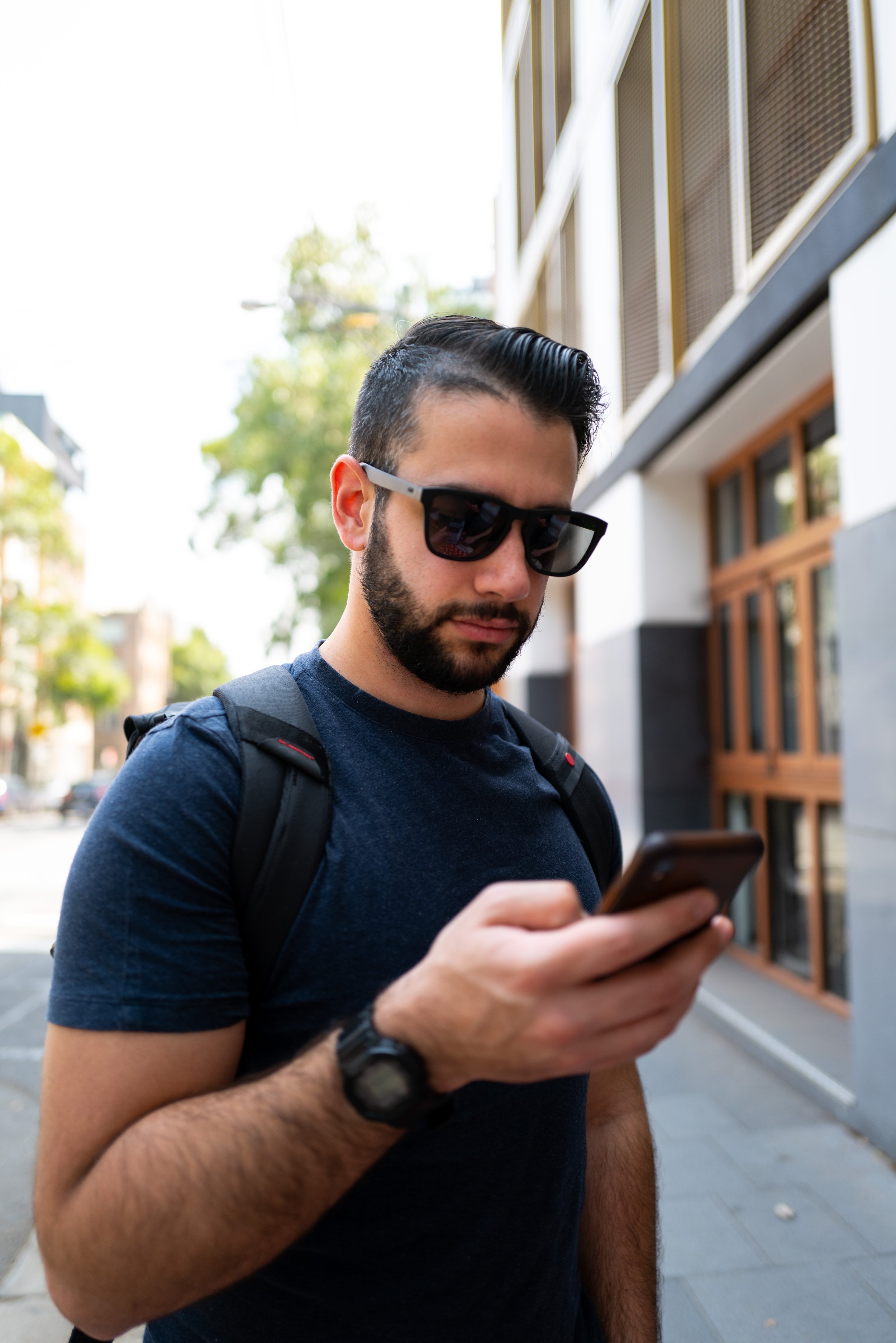
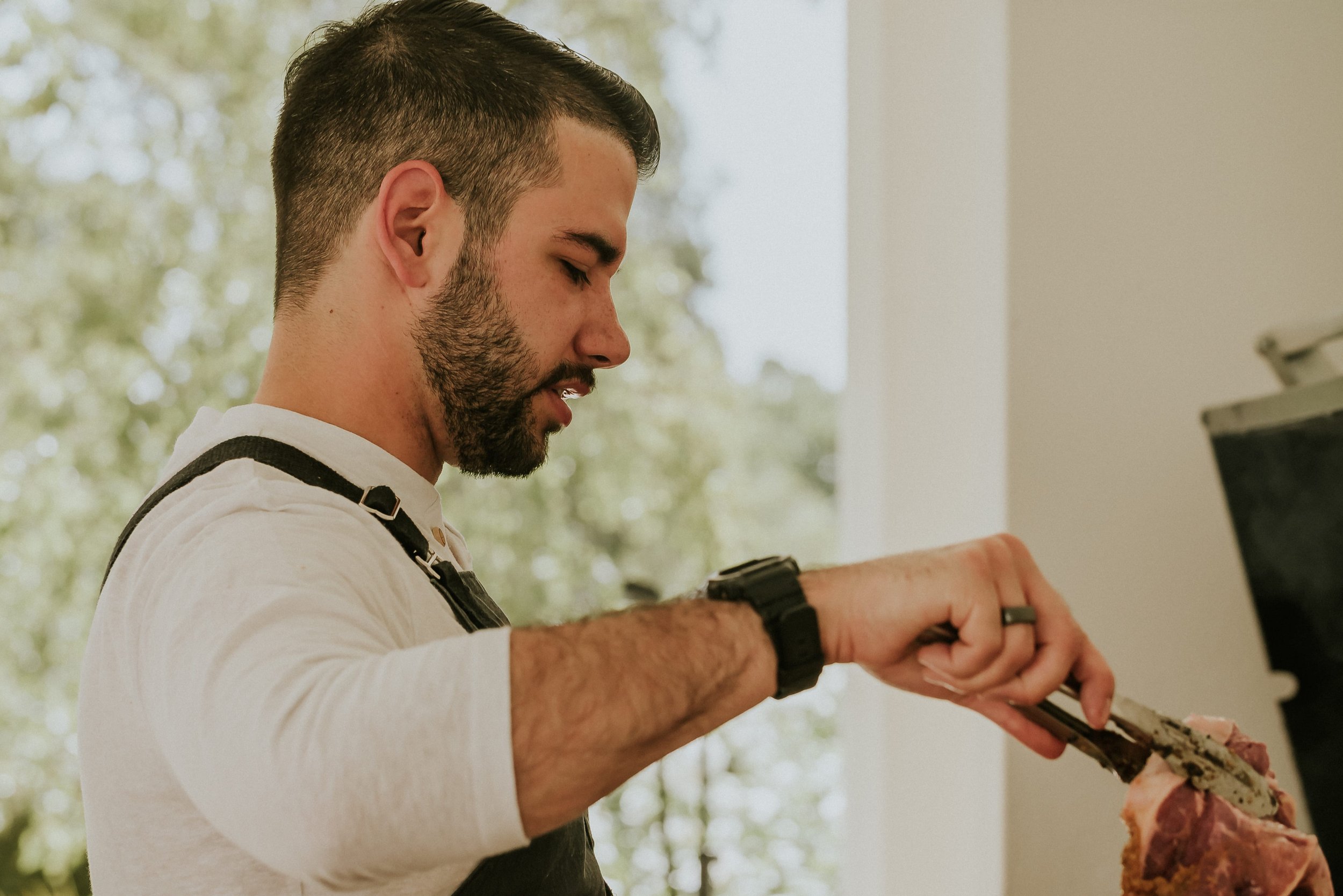
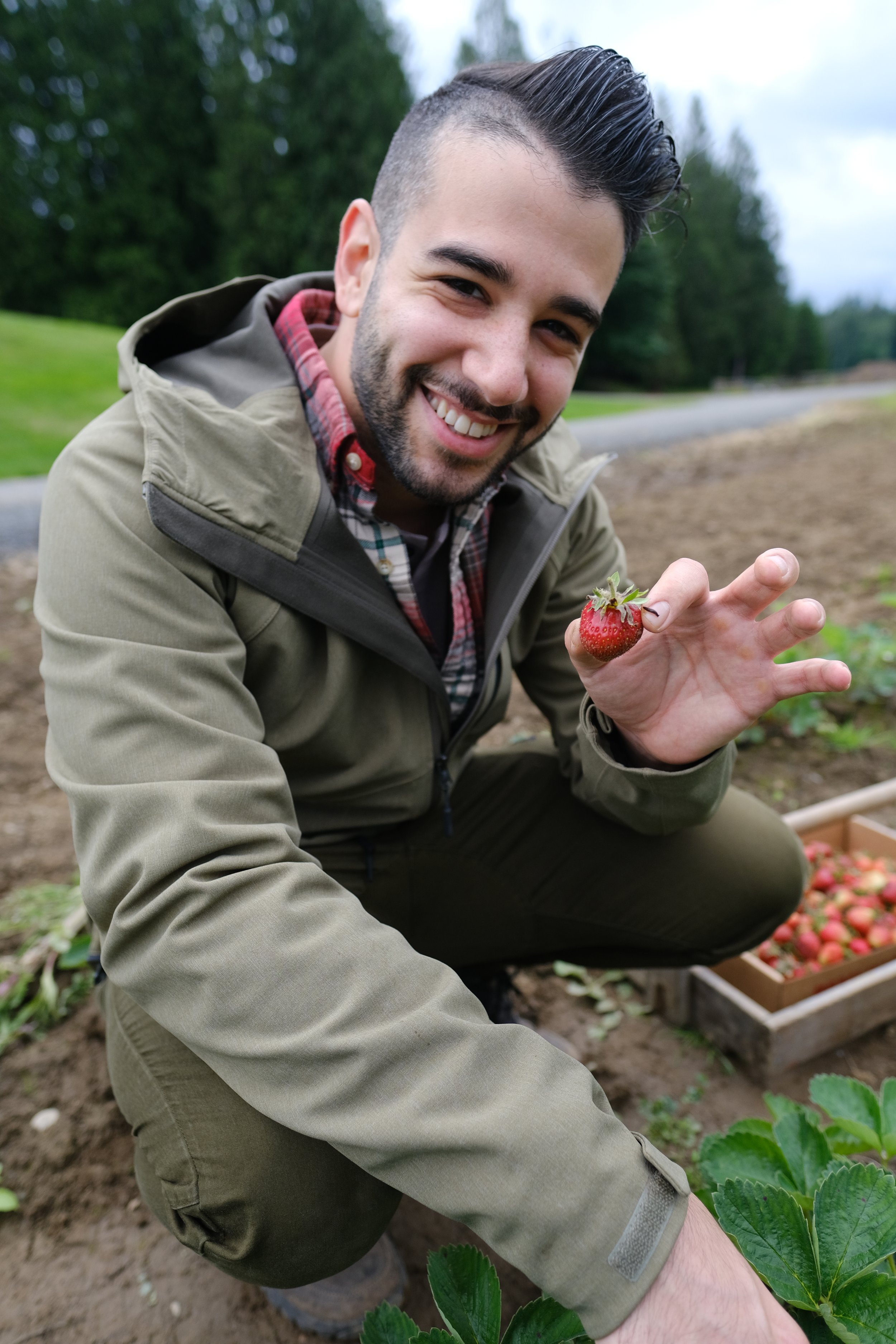
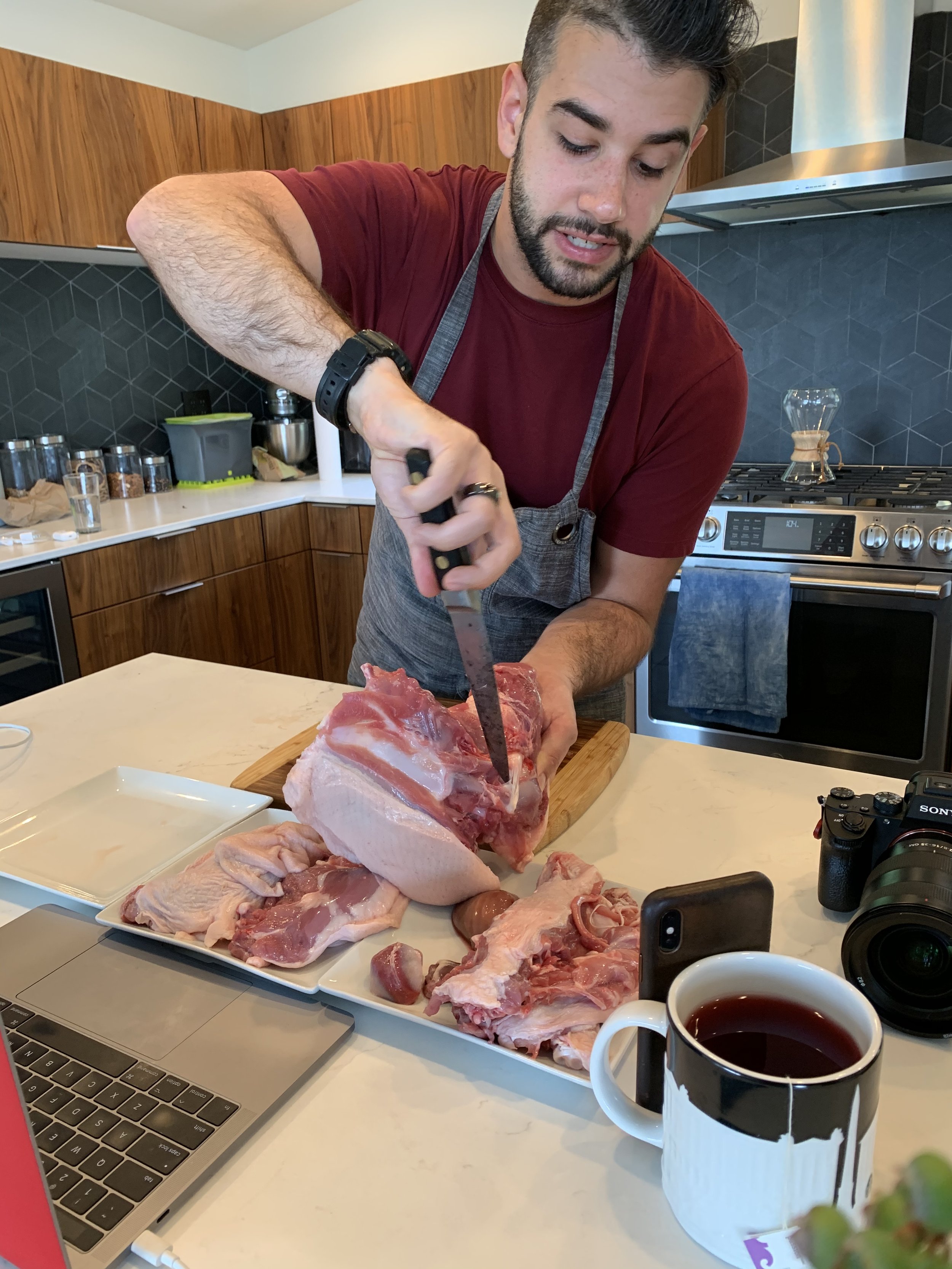
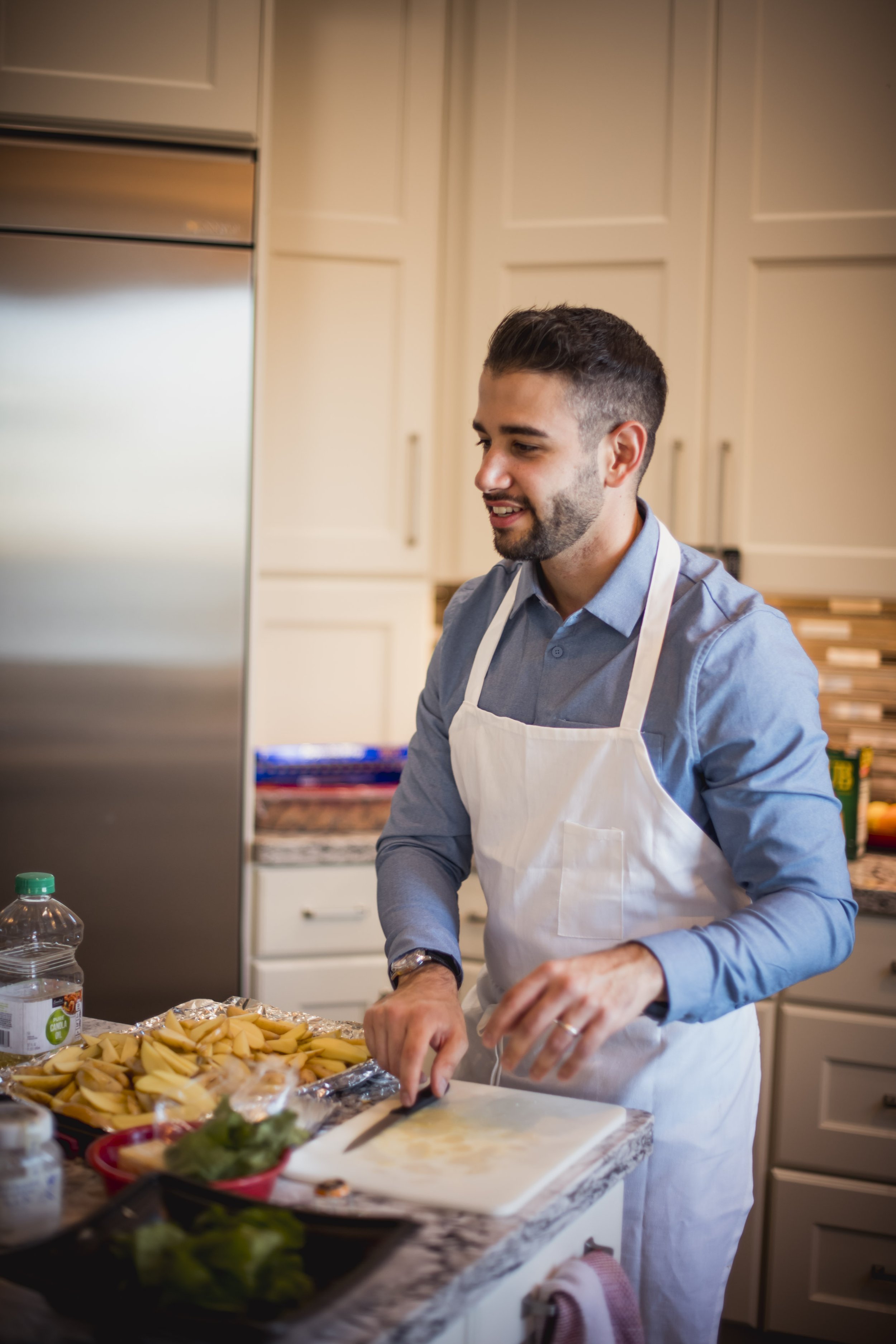

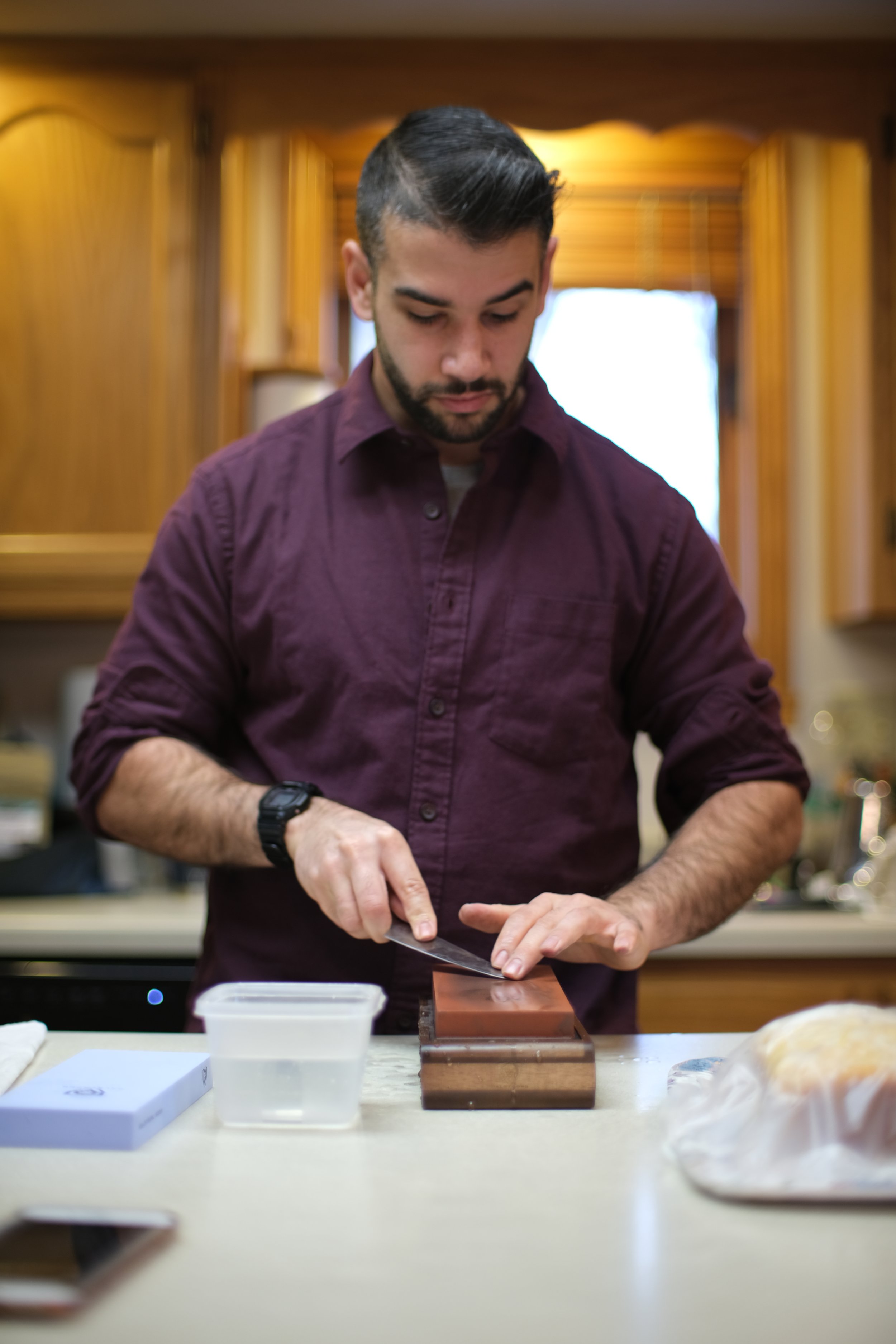
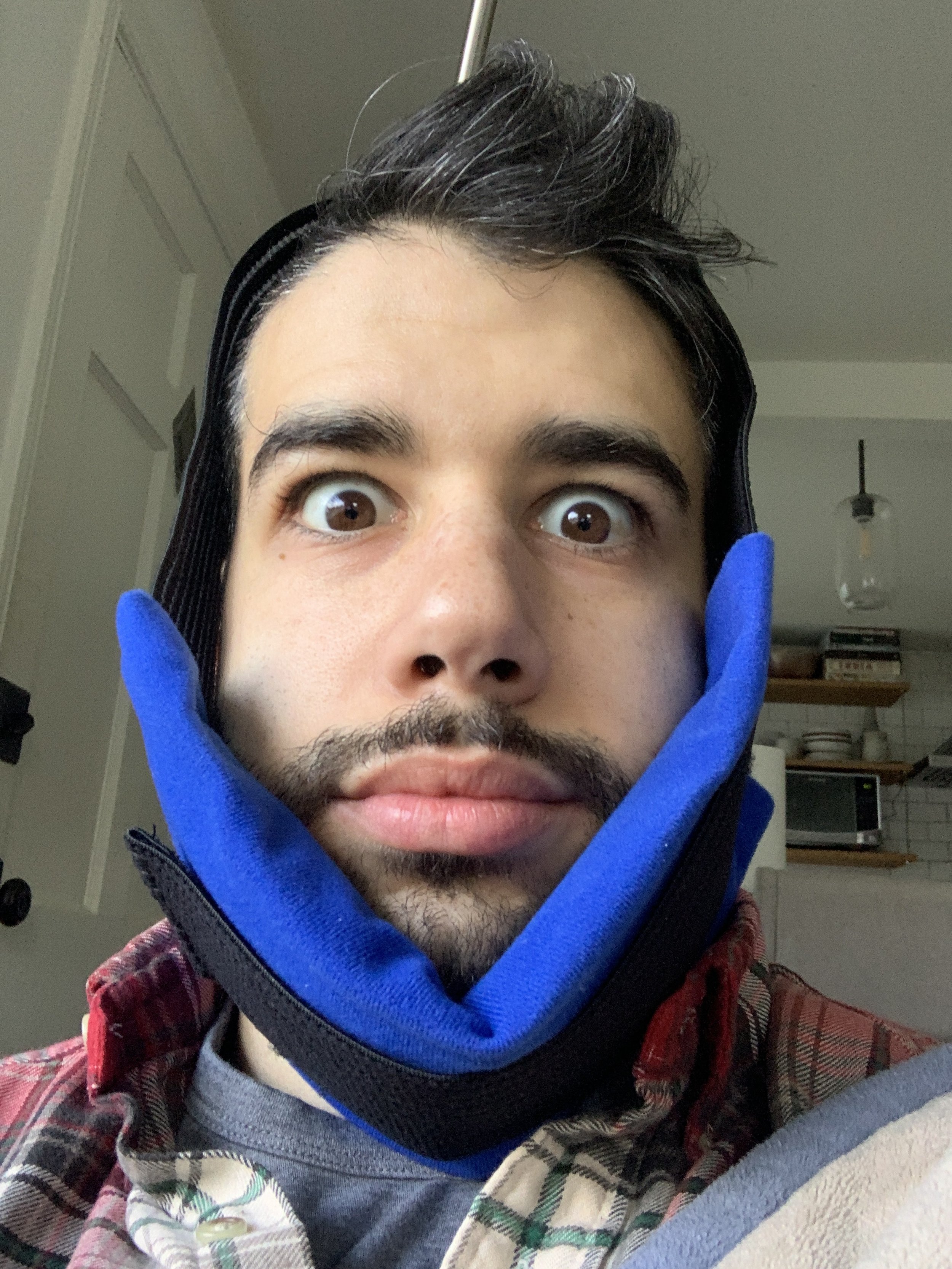
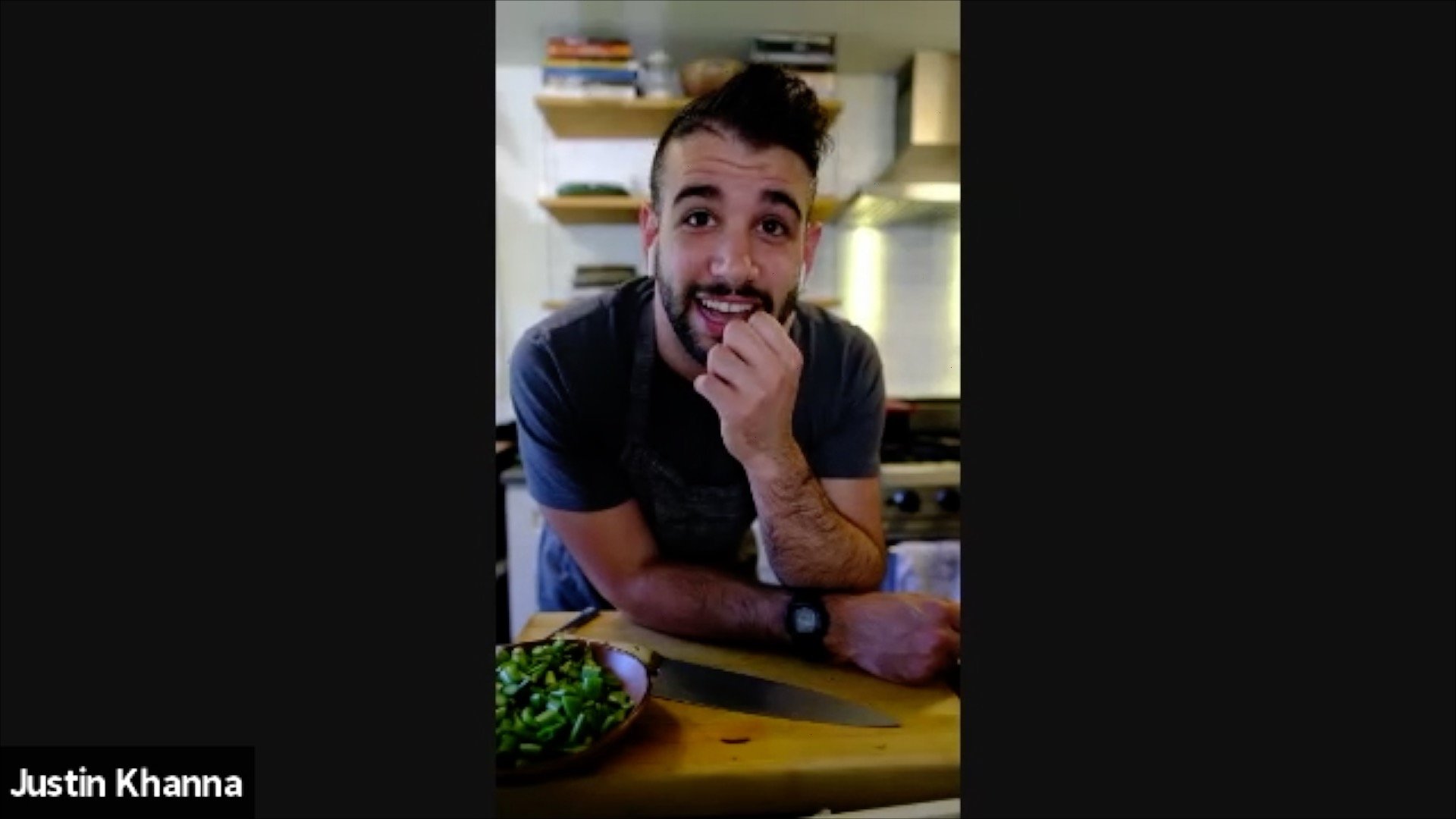
My 2021 Playbook
A word to the reader: writing these Playbooks goes against what I believe in regarding self-development.
Sharing these results, goals, and hacks are more for me than they are for you.
However, I enjoy reading other people's year-end reviews and resolutions because I like doing the work to figure out the underlying motivations, mental models, principles, and frameworks that people follow to achieve their goals. If you're the type to do that kind of work, please enjoy this.
But if this seems like a self-centered and rambling piece, that's the point.
I'm always get excited to write these because it's my one chance to indulge in my focuses outside of professional chef development & nerd-ing out on gear for the year.
This also serves as a meta-exercise for me to share what's helped me grow.
Since I do it publicly, and I only get to do this once for 2021, I'm forced keep stakes and "identity" in mind, making it much more likely that I'll stick to these points.
I also selfishly enjoy looking back at the previous editions to see how my thought process has changed, my writing has evolved, and how I've gained a sense of focus in my work and life. Check out previous editions here: 2017 | 2019
This edition breaks down into:
Health
Wealth
Family
Work
Hacks & Favorites
Please enjoy, and if you'd prefer an audio version of this, please check out this podcast on YouTube or scroll to the bottom of this piece and hit “Play” (effectively the audio version of this, with a few extra quips from me!)
Health
My interest in improving & optimizing my health started in 2018 when both of my parents received some pretty sobering diagnoses.
Previous to then, I'd always answer "family history health questionnaires" with N/A on any sort of chronic or diagnosable conditions. Now, unfortunately, I have to affirmatively mark "Cancer" and "Parkinson's".
During my quest to find the most long-term and sustainable preventative measures (many of which I covered in my 2019 Playbook), this year I've really taken to heart the principles of Dr. Peter Attia. He's done some incredible work on the relationship between Health-span & Lifespan, and many of his principles exclusively seek to extend my window before I receive similar diagnoses.
He shares that centenarians, those who live over 100+, don't die for different reasons than those that pass in their 70's & 80's - they are just better at delaying the onset of neurodegenerative, heart-related, and cancer-forming issues. Assuming the genetic odds aren't in my favor, I should be following a similar protocol.
Here's what I plan to change or continue:
8 hour feeding window - If truly delicious pastries are off the table (which they have been without my normal travel schedule), I really don't crave breakfast. Since I also prefer to train in the morning and like to do so on an empty stomach, eating my first meal at 10am and sitting down to dinner with Anna around 5:30-6pm just works. Since the feeding window is mostly book-ended by those two routines, I don't even need to use an app or timer to track things, and I don't beat myself up if I miss the timings.
I would like to try a 48-hour, water-only fast in 2021.
Higher quality food intake - I want to move past the mindset that "I've worked really hard today, I deserve to not cook for this meal" and "I should only be eating deliciousness". With both of those running as "apps" in my stomach-brain connection, I end up with too many tabs from McDonald's & Bonchon on my month's credit card statement. I tout my skills as a chef of being able to take "ordinary" ingredients and make them delicious, which should translate to continuing to build out a repertoire of favorite dishes to cook at home.
Current favorites include: a spinach + blueberry + spirulina + chia seed + turmeric + oat + protein shake for breakfast, or a kale & mushroom omelette on other days for variety. All other meals should follow Jeff Cavaliere's "plate clock"framework, to make sure the balance stays consistent. Otherwise, I'll end up with a fat plate of pasta, 3 nights a week.
Weightlifting - One of the most meaningful skills I've built over the last 2 years is building up my capacity to lift on the standard compound movements. I started with the goal to reach my bodyweight (175lbs) on the bench press, squat, and deadlift, and have since made new benchmark goals. For 2021, I'd like to reach a 400lb deadlift, a 335lb squat, and 295lb bench press.
I've set these based on wanting to see a realistic increase (near 20%) from current PR's (365lb deadlift, 285lb squat, 265lb bench)
I have a hard time believing I'd see an increase in my happiness or overall health by going beyond this year's goals, and the time commitment to staying in shape to reach a 400lb squat or a 500lb squat isn't really of interest to me.
Once I hit those numbers, it's a game of reverse-engineering the goals to hit Peter Attia's Centenarian Olympics.
I've also kept full-body weightlifting routines vs a specific muscle focus on days in the gym. On those days that I’m not lifting, I’ll be increasing my focus on…
Mobility & flow - All of that strength is easy to see in the mirror and fun to track through breaking PR's, but it's horribly lacking (and dangerous) if I don't balance it with a focus on my mobility. I also want to continue to prevent injuries to be pain free later in life. I saw this awe-inspiring video of a guy doing a "flow workout" on TikTok, and have since dug into learning about Primal Movement and Flow through authorities like Tom Merrick and the "Yoga with Tim" YouTube channel.
Building this variety into my workout looks like:
Monday - Weightlifting
Tuesday - Running (alternating distance & sprints week-to-week)
Wednesday - Weightlifting
Thursday - Yoga or Primal Movement
Friday - Weightlifting
Saturday - Corrective day (face pulls, weighted pistol squats, Turkish Get-ups, hip work, Jefferson curls)
Sunday - Rest or light hike with Anna
I've fallen into an incredibly greased groove with this routine, and since it maps to my longer term goals, I'll look to continue the trend this year.
Mental health - I'm still using Sam Harris's Waking Up for mindfulness practice. I've challenged myself in the last month of this year to increase my meditation time from 10 minute sessions to 20.
I realized: yes, I was able to consistently take 10 minutes to become aware of my thoughts, track patterns, and calm down. However, I find a massive difference in mental "unwinding" by doubling the duration.
To mirror it with an exercise analogy, the standard 10 minutes felt like I was "getting a quick run in" on a paved track every day, and all of a sudden someone took me out on a one hour trail run with the 20 minute session. Yes, the act of meditating is the same, but the time spent under "tension", the terrain you experience, and the shorter periods of increased "intensity" make it a new thing entirely. I'm on a 6 day streak of 20 minute sessions as I write this, and I want to make that the new standard in 2021.
Another point I think falls under this heading is anxiety. I know I'm not alone in people who have seen an uptick in their levels of anxiety this year, but I've done a lot of introspective work to seek the root of it.
What I've learned, and what I hope to carry into this year, is my relationship with procrastination and my emotional investment in my work.
The cycle, for me, typically looks like:
Say yes to a thing > become emotionally invested in a successful outcome > want to "crush it out" just before the deadline for the adrenaline rush > since I don't dig into doing the work right away, that increases my anxiety about the outcome > emotions intensify > David Perell's definition of procrastination: "coping with challenging emotions & negative moods" > procrastination leads to more anxiety > rushed, lower quality outcome, OR a situation where I'm so emotionally twisted with the work that no amount of success would justify the means.
This was all summed up in this line by James Clear: "...action relieves anxiety."
The full quote:
"Working on a problem reduces the fear of it.
It’s hard to fear a problem when you are making progress on it—even if progress is imperfect and slow.
Action relieves anxiety."
The goal for 2021 is more action; acknowledging anxiety when it arises, not ignoring the emotional involvement, but accepting it as part of the process. See more about my plans for how I plan to use my time in the "Work" section of the Playbook.
Alcohol Consumption - I was really surprised to hear Chris Williamson's reasons for being sober: not just as a "productivity hack" but because he's a night club owner. I assume that anyone in the hospitality industry can empathize.
He shares that drinking, in excess (and spending copious amounts of money to do so) take away your:
Disposable income (that could be investing or paying down debt)
Disposable calories (that could put you closer to your weight loss goals or give you more calories to eat foods you love without guilt or gaining weight)
Disposable time (this isn't directly referring to the time drinking, but the wasted mornings & afternoons after spent "recovering" from the previous night's antics)
I always struggled to explaining to people why I didn't enjoy using alcohol as a way to "blow off steam", but now, I can clearly articulate: it's because I hold having extra income & extra time in such high regard.
I plan to continue enjoying alcohol in moderation in 2021, through trying new natural wines with Anna (La Dive in Capitol Hill & the Juice Club pop up at Union Coffee in Seattle are our go-to's), and ordering a glass or two when going out to restaurants is a reality again.
For meetings that take place during happy hour (if those end up being a thing this year), I'll inquire about zero-proof cocktail options, or challenge the bartender to make a really delicious sparkling water.
Supplements - I still take caffeine in the form of Chemex-brewed coffee every morning and the occasional Four Sigmatic Mushroom Coffee. I'm spotty with my intake of Vitamin D3 supplements, and strive to get the majority of my nutrients from food. None of my bloodwork shows that I'm deficient in any vitamins or minerals, so I'll continue the trend. I tried AlphaBrain from Onnit and can't seem to notice any cognitive enhancement.
Sleep - My Oura ring continues to be the best "investment" I've made in my quality of sleep. The visual ritual of checking my numbers every morning really creates this "what gets measured gets managed" incentive structure. I gamify the scores, so the goal is to always beat the previous day's numbers, and if I'm feeling REALLY good that day, I'll typically have a harder than normal work out which brings the numbers back down, but since that tracks with the fitness goals in my life, it's a win-win.
Those of you that follow the email newsletter know that I experimented with blue-blocking glasses from Ra Optics this summer, and they've transitioned from the "ritual" shelf to the "break glass in case of bad sleeping habits" shelf. I'll occasionally remember to put them on, but as long as I can keep my mental health and exercise routines in check, I don't seem to have any issues falling asleep at night.
Tennis - I re-kindled my love for racquet sports in 2019, and I was really hoping to dig into them in 2020. With a lot of tennis centers closing down, and wanting to keep my in-person time with my typical pickle-ball buddies to a minimum, I've really fallen off of that train. My goal is to reach a 5.0 USTA rating, by investing time & money in professional tennis coaching, and maybe even some competitive matches in 2022?
I also want to keep calling my friends to play pickle-ball, because it's crazy fun and curbs my competitive cravings.
None of the information shared here should be substituted for medical advice. This is solely what I’m personally working on.
Wealth
I want to start this section by sharing a few bullets that have helped me feel more secure about my financial position. I didn't grow up with any mentoring in this arena, and both of my parents have very skewed ways of looking at money, which forced me to seek out my own learnings & principles. I've shared this with my younger sister to help her build a foundation, and I hope to do the same for you if you're in a similar boat:
Acknowledge your financial thermostat setting - I spent the better part of my career in professional kitchens with a $5,000 "setting". What happens with a thermostat in a house? If it's too hot, it takes measures to cool things down, and if it's too cold, it kicks on the heater. Whenever I'd get above $5,000, since I didn't have any other long term goals, I'd find a way to buy a new knife, go on a trip, or see it evaporate on eating out too much. On the flip side, if I found myself with $2,000 in my account, I'd immediately adopt a more frugal mindset, or take on projects that made me more money. The magic happened when I started "scoffing" at my own self-defined thermostat setting, and raised it to $10,000. The result? Same behaviors, increased net worth. What is your "thermostat" set at, and what would happen if you increased it this year?
Emergency fund - There's a reason almost everyone preaches having 3-12 months of expenses as step one in financial literacy. Regardless of your long term goals, budget plans, or which personal finance personality you're following, the fund gives you options. Even if you don't plan on quitting your job with expense security, 2020 taught all of us that cashflow disruption is real. It's a sobering reality to hear about the percentage of Americans who would go into debt with an unexpected $400 expense, and having what my dad would call a "cushion", helps you be prepared for those. Practically speaking, I built mine by putting aside increasing %'s of my paycheck every month until I hit 6 months, and then began investing. Profits from investing were funneled into the fund to help hit 9 months, and that's where I'm comfortable. Since I have diversified income streams, I'm confident in my ability to pivot my focus, versus being nervous about losing a singular job.
Invest in yourself - I find that this gets inaccurately interpreted as "spend money on yourself". The best investments in myself I made were watching free YouTube tutorials, reading articles, and listening to interviews with people more successful than me. See, also, the Health section, because if you aren't able to perform, in most cases, you aren't able to earn. A huge amount of this work can be done at an extremely low financial cost when you have more time than money. The people who you see hiring personal trainers, taking online courses, and working with business coaches have the reverse.
Embrace compounding - Our brains are horrible at understanding logarithmic functions and long time horizons. That leads to a neglect of what Albert Einstein (might be a misinterpretation) called the 8th Wonder of the World: compounding. A fantastic tweet from Anthony Pompliano shares the wisdom that anyone can be a millionaire via consistent discipline and a long enough time horizon (read the comments to see your rebuttals). Run the numbers yourself, to see just $100 a month invested, for 30 years at an 8% rate of return, reach $136,946.12. If you’re unsure how to input the numbers, don’t shy away from the process, seek out the knowledge to understand it.
Remove the choice, via automation (shoutout Ramit Sethi)- Human nature falls victim to temptation at the soonest opportunity. If you leave the task of "saving $175 every paycheck towards my emergency fund" or "invest $230 to my Roth IRA" or "pay $85 off of this debt I have" to your own manual processes, you'll find other creative & goal-disrupting ways to use that money. I have specific automations through services like Wealthfront and my bank to make money "disappear" the second it hits my account, so that I remove the choice of where that money gets spent. It sounds so simple, but with less to spend, I'll spend less. This is an advanced step on the financial thermostat principle.
If a lot of this is second nature to you, congratulations.
But I can distinctly remember when I was offered a 401K when I was an employee at The French Laundry, and asking my room mate at the time if it was a good idea to enroll in it. He advised me to do it, but at the time, it was the choice between more money in my paycheck every month, or the thought of saving for retirement (with an employer match). My mindset was: I'd rather take the extra money and save it myself (spoiler: it just got spent). I missed out on years of potential compounding just because I trusted myself to manage those funds.
I share this (and will probably continue to do so) because nailing these basics (which seemed like advanced financial wizardry to me 4 years ago), gives me the ability to move onto more "advanced" uses of money now. I don't want to share my learnings & wins in aggressive stock market investing, seeking equity in start-ups, buying vintage Pokémon cards, real estate, or Bitcoin without the acknowledgment that I can only do so because my bases are covered.
To share some goals I won't reach this year: I've shared in the past that becoming an investor & advisor in early-stage hospitality, food media, or gear-focused businesses is an ambition of mine in my 30's & 40's, and this chapter of increasing my net worth is part of that process.
The audio episode has a bonus quip on how I'm saving up to $12,000 a year by cooking more at home. Listen here. (Starts at that clip in the episode 🙏)
Family
"People who are driven to excel have this unconscious propensity to underinvest in their families and overinvest in their careers - even though intimate and loving relationships with their families are the most powerful and enduring sources of happiness." - HBR's "How Will You Measure Your Life?"
I officially started a family in 2020. I married my lovely wife, Anna, in October, and we'll celebrate being together for 10 years in 2021. After 28 years of inward-focused progress and work on myself, the paradigm has shifted.
This timing coincides with a deeper connection to my family from my father's side in India, and I've grown to see them as a huge priority in my life.
The combination of:
My mother and sister don't feel a connection to India or see the value in fostering the relationship
My father is an only child and doesn't have any siblings to hold the connection
Many of my relatives in India (aside from one cousin who lives in the US) have grown up there and don't travel outside of the country
...makes me feel an immense sense of responsibility towards keeping the bond with the culture strong and present, through travel, connection with family and making interaction with India much more of a "thing" than it was for me growing up.
Kids aren't in the plans for Anna and I in 2021, however, it will be part of our next 3-5 years. We've both agreed to enjoy at least 1-2 years of marriage without children. We haven't even gotten the chance to take a real honeymoon yet, so we're doing our best to be patient with our timelines.
This is one of the shortest sections of the playbook this year, and I foresee a ballooning of the "Family" section over the next couple years.
To keep a thriving marriage, we will continue to work in sessions with our therapist who did premarital counseling with us on a less-frequent, but consistent cadence. Navigating these changes and goals we have for our relationship with a third party has been incredibly valuable, and I couldn't recommend it enough. It's helped me understand my wife better at a psychological level, and it allows her and I to look at conflicts and each other's patterns with much less emotional reactivity.
The hardest part of 2020 was not being able to see my parents as much as I would've liked to. I had immense conviction in my desire to budget time to see them in previous Playbooks, but calling them multiple times a week has had to suffice in order to protect their safety.
Work
Work was challenging for me in 2020. I weighed each one of those challenges with the gratitude towards available work to do, when 2020 stripped that away for so many.
However, facing those challenges has taught me a lot that I plan to bring into 2021. My time spent working will be divided up between:
Co-founder and Executive Chef of Voyager's Table
Running The Demi Skills Course
Hosting The Emulsion Podcast
Writing content for my website, email newsletter, online Circle community, and video scripts for my YouTube channel
Coaching & consulting
I took for granted the setup I had in 2019, where I was able to cook sustainably, in-person, by running private events through the business I co-own, Voyager's Table, while simultaneously working on sharing my ideas & growing my personal brand through my own self-published content online. It was the perfect combination of working in person with a team, interacting in guests, and growing a small business, while also giving me dedicated, introverted time to edit videos, write scripts/emails, and do online work that scales.
That fell to pieces in April.
We stopped all in-person events, reduced our team to a "skeleton crew", and almost every part of our business moved online. I would spend 10 hours a day at a computer, and it was driving me insane. All I wanted to do was smash out prep for a dinner, or set up a venue for an event to balance out the monotony of living in spreadsheets, Gmail and Word Documents.
It all came to a head in September, when I had to have a hard conversation with my business partner about taking a step back from the company.
A line from an interview with Tim Ferriss and Kamal Ravikant (he shares the story in this conversation) gave me clarity: when Tim was making the choice between writing another book, or continuing to invest in startups through "Angel Investing", Kamal asked him which avenue would allow him to have a deeper impact on people - and it was a no brainer. There's a never ending list of people who have money to invest, but only Tim can write Tim's books. That insight led to so many positive changes for me.
I'd go on to reduce my time working on Voyager's Table to 2 days a week, which allowed the team to learn how to do my work of interacting with purveyors, sourcing product, and creating recipe documents. We streamlined our offerings for clients, moving away from a reactive, "custom-only" model, to creating products that sync with our high level of service for corporate teams who want to gather or entertain their clients.
I'd like to call to light an error I made in a previous Playbook, where I reference the desire to execute a $50,000 event. It was a natural next step, upping the order of magnitudes of event budgets from $500 to $5,000 was exciting, and I knew that I'd need the help of a team to scale beyond that. However, in booking our first 6-figure event for 2020, I didn't take into account the energy-suck that would accompany that "success".
I started to agonize and ruminate over the logistics of the day. I found myself buried in spreadsheets, run sheets, budget documents, staffing plans, and I knew I would barely do any cooking at the event itself.
I would be tasked with the important job of managing a team of chefs, but wasn't that the reason I left restaurants? To save that work for later in my career, and focus on cooking more now?
That event was cancelled due to COVID, and we never ended up executing it. The lessons learned will stick with me forever, and I'd like to share them here so that you don't make the same mistakes:
Understand what you're optimizing for - I think this time of year, it's easy to succumb to the "same but more" trap of goal setting. You made "$X" last year, so this year, the goal is "$X times 2" or "$X + Y". You saw "X" visitors or traffic last year, so the goal should be "Y% more" this year. Instead of focusing on "growing the number of people in the team", how can you grow the individual members of the team so that they feel like they can output more, and ultimately feel more fulfilled at work?
How you make your money is more important than how much money you make - This is a Gary Vee-ism, and I don't think I realized how important it was until this year. I think we can all acknowledge that there are incredibly "easy" and consistent ways to make money via simply getting a salaried position, or via a business that focuses on arbitrage (buy for $3, sell for $15). However, if you make the money the goal, you're, by definition, de-prioritizing other factors that ultimately make work satisfying. How can you take your financial goal, and swap it with something that's going to bring you an "intangible"? Things like a deeper connection with your team, expanded network, more time for family, or less pressure. The funny result is often that the financial rewards come anyways, and you're happier for it in the end.
Personal goals vs business goals - I wanted the "clout" to be able to say how much my time was worth and the magnitude of the projects I was working on. What I should've been focusing on, is the quality of the partnerships that the business I co-own works on, and what's best for the business instead of what's best for me.
I'm also leaning into delegating more in 2021 based on the work of Tim Francis and his company, Great Assistant. I don't plan to shell out $3K for his recruiting service, but I have a structured approach of creating Standard Operating Procedure documents for my frequently done, repeatable tasks.
As long as the task has sufficient resources, a strategy, and a clear "definition of done", it can be delegated. To the chefs reading, if your delegation process doesn't seem like it can fit with this framework from a traditional "office", I'd challenge you to give it a shot:
Does your team have the resources, a clear strategy, and your objective "definition of done" in mind when they work without you over their shoulder?
I'm also nearing the completion of coming full circle on my rejection of traditional "executive chef" responsibilities. I made a quip a few years ago in a podcast interview where I referenced the fact that I consider myself in the top 1% of line cooks in the world. My frustration came with the fact that I had hit a salary ceiling, even though I knew I was world-class on a physical, skill-based job where my productivity directly tracked with increased quality & quantity output for the business. There just isn't anyone who is paying $100,000 a year to a line cook, even if they're the best in the world.
I believe I've come to a conclusion on why this is so frustrating to me.
I'm about to make a left-field analogy, but stick with me for a minute: think about an architect who is really good at building those tabletop models of office buildings, apartment complexes, and high end malls. The model-maker is able to quickly produce incredibly accurate, stunning models that consistently bring the vision of their boss to life. It impresses clients & encourages them to take on future projects, and they're even able to pick out details of the construction process that could more align with their models.
But you and I both know that the value of the talented (and well-compensated) architect comes from coming up with the ideas, selling the clients on big lofty visions, coordinating with contractors, sticking to budgets, being willing to put your brand behind the project (and on the line), and ultimately building an architecture firm that can survive regardless of who is building the models.
I was foolish and selfish to think that as a line cook (the model-maker), I could continue to increase my cooking speed, effectiveness and consistency, and ultimately command a higher salary. Increased compensation typically comes from leverage, which I learned more about through reading Naval Ravikant's work.
When you're a great line cook, you're a master in the restaurant you work in by being a proxy chef. You're able to take the dishes, recipes & techniques that are taught to you, and replicate them day after day for guest after guest. You truly rely on great cooking skills and what the average person on the street would recognize as “what a chef does”.
That journey was incredibly difficult, took me years to complete, and was one of the most satisfying achievements of my life when I finally nailed it and felt like a competent and high performing chef. You certainly make the transition from cook to chef, but there's a level beyond that is less about your "chef" skills, and much more (almost entirely) about your skills as an entrepreneur and a leader.
Since then, I no longer seek knowledge from famous or well-known chefs to learn about business building. I get more value from entrepreneurs who have built businesses that are more sustainable, profitable, or scale more effectively than restaurants because my disbelief in the standalone restaurant model still holds true.
However, just because I'm taking knowledge from people that are 3-4 rungs above me on the ladder of success, this doesn't mean that I can't share value to people 1-2 ladder rungs below me. (I took this from David Perell as well).
Each and every one of the abilities and skills learned through adapting to different environments, mastering techniques (sauce making, protein roasting, open-fire cookery, pastry work), recipe creation, managing a team of creatives, and being able to stay cool under pressure leads to a huge competitive advantage.
Having extra time in the last quarter of 2020 led me into exploring this nebulous idea of intense, scalable, high end self-development for professional chefs that has ultimately solidified into a course that I'm launching in Q1 2021. I hired a coach to help me build this out, because I want to do it right and learn from people who have built multiple 6-figure coaching and course-based products.
The Demi Skills Course
Since we've all come to see the benefits of being able to adapt in the face of change (or flailed attempting to do so), there are foundational pieces of knowledge that I either learned along the way or wish someone would have taught me sooner. We also know that the techniques, build-outs, recipes, menu structures, brigade setups, prep styles, and cuisine types change from restaurant to restaurant (or from catering company to cafe to private chef client).
So I asked myself: what carries through? If we all have to relearn each one of those aspects of a new kitchen, what do we bring with us everywhere?
That's been the motivation and mindset I'm taking into developing the course I brought up earlier. It's called The Demi Skills Course; the French word for "half", symbolizing the "other half" of skills that are required for peak performance, but not systematically taught. And “Skills”, meaning they're able to be taught, learned, and improved upon. It’s less about what you’re “born with” and more about how can these be instilled through habits, repetition, and real-world application.
As I write this Playbook, I'm in the process of writing the first set of slides of the curriculum, and there are 8-12 likely candidates to beta test my first run-through. I'll teach the sessions live, and the entire cohort will run through the course together.
To aid in marketing, I'll be running a 5-Day Kitchen Productivity Challenge for free for prospective students to "road test" my teaching style and see if they're able to deploy the learnings at their workplace or school environment. Make sure you're signed up to my email newsletter so that you can hear about it first.
Once the full priced course launches, I'll also be calculating 5-10% of the total size of the cohort, and then offering scholarships based on that amount (ie: in a cohort of 50 people, there will be 5-10 additional scholarship spots, so a total cohort of 55-60). I hope this will make the learnings accessible to as many people as possible, while also keeping the focus on scaling the business.
The beauty of this breakdown is that it FINALLY fits into a standard work week for me. I'm doing my best to work just 5 days a week.
I also shared a trial of a work day template I was trialing a few weeks ago, and I plan to make that the normal in 2021. It looks as follows:
6:00 - Wake up & morning routine
6:30 - 7:30 - Read articles & tackle email inbox
8:00 - Train
9:00 - 9:45 - Phone calls & meetings
9:45 - Breakfast
10:00 - 2:00 - Deep work - I use this Pareto timer to gamify the time.
2:00 - 2:30 - Walk
2:45 - 5:00 - Calls, meetings, emails & errands
5:00-6:00 - Dinner with Anna
6:00 - 9:00 - Reading, relaxing, video games, cards with Anna, phone calls with family
9:30-10:00 - Night time routine
10:00 - Sleep
A few things to note on this routine that I've learned about myself through experimentation:
It's best for me to knock out a few admin tasks before diving into deep work as a quick warm up of the brain, and since finding a 10 minute inbox categorization routine, that's enough for me to grip what's urgent to respond to. The remaining emails can wait until after my deep work session.
I only have one deep work session per day. If I can manage to get two (usually in the window of 6pm-9pm) that's a bonus. Protecting that 10am-2pm time from all meetings, interviews, leads to truly profound output for me. The days when I miss it are the days when I feel like I'm slacking.
Hacks & Favorites
Creating & building my second brain in Notion has been one of the best investments of time I've ever made. I watched almost every single free video & blog post from Tiago Forte, and built a system that works for me. Through planning my own wedding, moving a parent across the country, keeping track of my notes from reading books & articles, outlining my goals, tracking gym workouts, planning my content, and my day-to-day tasks & errands, it's an invaluable part of my life and I can't imagine life without it. If enough people read this section and request a breakdown of my Notion setup, I'll make a video.
Make the bookmark you use for YouTube to lead straight to either your Watch Later playlist or your Subscriptions. YouTube is incentivized to give you a range of options that might strike your mood, possibly roping you into a time suck that you didn't sign up for. This hack optimizes for pre-vetted content: channels you've already agreed you want to see from, or videos you've decided are valuable.
Experiment by making your training separate from your morning routine. It's not to say that they can't bookend each other, but having a routine that you can continue to stick to even on days when you're traveling or taking rest days has been wildly valuable for me. Too many people consider their training part of their morning routine, and if life gets in the way, it's common to think that you've "failed" your morning routine.
To the previous bullet, I read some advice (and I can't remember the attribution) about shifting your priority of your day to "take care of yourself". If you've done that, the day is a win. Once that's out of the way, you can take care of others. So many people "try to fit in a workout" when in reality, it's one of the highest ROI uses of your time. The same goes for meditation. I try to have both knocked out before 9am, so the rest of my day can be dedicated to helping others, and it makes sure I don't miss a session. Try front-loading your health as a priority.
Turning 29 was weird. I feel like 28 was the last year of being perceived as “young”, but I can reasonably expect to empthize with people 15 years older than me. I’ve heard of 42 year olds that have great gym habits and claim to feel like they’re in their 20’s. And I also hear about people who are 38 who are dealing with challenges that I’ve already overcome. This gives me immense motivation to seek out long term solutions vs short term hacks, because those habits will be with me for the next decade or two.
Avoid news, seek lessons.
Two solid appliance purchases I'm happy to recommend are the Baratza Encore Grinder & the Breville Smart Oven - the biggest reasons I enjoy them both is the consistent results and adaptability between different projects. The coffee can be coarse, or fine, for Chemex or Aeropress, I can grind up to 16oz at a time, and it's quick. The oven preheats quickly, has solid settings for air-frying (aka "blast mode") and dehydrating, and fits near-perfectly on a counter top in our kitchen.
I'm repeating a small-input but big-result part of my morning routine from a previous Playbook: splashing my face 3 times with cold water, and smiling at myself in the mirror. It rehearses the mental stimulus of "overcoming discomfort" and changes your state by seeing yourself visually smile. The cold shower routine is great in principle, and I'm sure has greater physiological effects, but I know I can stick with this. I also find it to be the minimum effective dose for facing discomfort early in the day.
Having multiple income streams is a life hack. Investing in them offers benefits through financial security/options (by being in different spheres from other forms of income in case the market changes, or if you want supplemental funds for other ventures in the good times), as well as new industry to explore. Some examples could be: time playing chess on Twitch could benefit your mental clarity in your accounting job. Selling leather strops on Etsy on the weekends can give you a break from your law-firm job provide extra money for a family vacation. Providing knife sharpening services could expand your network of chefs and more hands-on work than your sales gig. As I see this grow in popularity, I find that it gives me the ability to reach a greater audience who use cooking, knife sales, or working with chefs as their secondary income stream.
"'Free' often ends up being the most expensive" - from Tim Ferriss's "11 Reasons to Not Become Famous"
I read a lot of Derek Sivers's work in 2020, and engaged with him over email a few times too. The guy is prolific as a writer, and I admire his love of life, kindness, and creativity. Start with his "Anything You Want" book, and pick up his newest "Your Music & People" book, which absolutely has principles that cross over to the food industry (replace "Music" with "Food").
If you've lost or had a hard time finding your "circle of 5 closest influences" in 2020, use the internet to do so in 2021. As much as it sucks to not be able to see people in person, this time "alone" can serve as a reset for who you surround yourself with. Find them, engage with them the most, bookmark their websites, support them financially, and teach the algorithms to show you their content more. If I'm being honest, it's part of the reason I share this Playbook every year; if you want to consider me as one of your 5 people, I want to be transparent with you and share what I'm thinking about and working on. I'd hope it helps you be more confident about your goals and ambitions, versus feeling like you need to be ashamed for having them.
If you have issues sticking with goals, attach them to an identity to help make them more close-to-the-chest. For example, instead of "read 20 books in 2021", add a subtitle of "become a prolific reader". I did the same with a few purchases this year. When I set "buying a Fuji XT-4" as a goal, I attached "achieve camera setup satisfaction" to that, making the purchase bigger than just a new piece of tech. Now, an upgrade in the future requires me to admit that I'm "not satisfied".
With goals, I tag completed ones as either "Maintain" or "Accomplished" and keep them as part of my Goals sheet. It's worth remembering that you've already accomplished a lot to get where you are, and if you've developed habits, acknowledge the fact that you're doing a lot of work to maintain those. As you start to plateau in certain disciplines, it helps to remember this.
I took a wild and crazy amount of notes on Nathan Barry's "Ladders of Wealth Creation" piece. Hopefully you can see how I'm working to move "up and to the right" on his ladder diagram.
The same goes for the work of Naval Ravikant, and I've really been enjoying Eric Jorgensson's Almanac he made.
All of the episodes of Modern Wisdom between Chris and George on Mental Models are stellar. The latest episode (104) has a few repeats, but it's still fantastic.
Noah Kagan has been crushing it on YouTube this year, and this interview he does with Tom Bilyeu was one of my favorites of the year. Two great quotes I'd like to share: "Money spends once, knowledge and relationships spend indefinitely." & "Only those who get lost should give directions".
James Clear's 3-2-1 Newsletter is a masterpiece of work, and it’s no wonder he’s got 1M+ subscribers on his list.
Chris Willx's 3 Minute Monday Newsletter is a more introspective newsletter, and would’ve provided me IMMENSE value had I found it when I was 20 years old. I enjoy it now because I like updates on when he posts new episodes of the Modern Wisdom podcast.
David Perell's Monday Musings & Friday Findings really push me out of my comfort zone and I find myself reading about architecture, art history, commerce, data analytics and writing which give me a much needed break from the rest of my reading list.
Brain Food from FS has some hit & miss weeks, but it’s similar to David Perell’s work in that it gives me an excuse to read high-impact and curated pieces from Olympic Coaches, billionaires, CFO’s from Fortune 500 Companies, and more. It’s focused on helping us make better decisions and think better, which I’m 100% about.
Max Shapiro on Instagram for incredible menu items from his Oxalis dinners & honest takes on high-end food & wine experiences.
Omnivorous Adam on YouTube & IG - he's gonna blow up soon and you love to see it.
Nick Muncy on IG - his incredibly creative food photoshoots for his Toothache Magazine.
You should definitely follow everyone I've shared on #TheEmulsion Podcast (obvi)
Next Steps
Support my content for just $1 a week at justinkhanna.com/support to get access to my online community I'm building out this year, effectively taking Patreon into my own hands so I can do great gear offers, continue the conversation from videos or podcast episodes, do AMA style videos, and more.
Leave the podcast a review on iTunes, I know it doesn't seem like it's as helpful as financial support, but it really does show the "food" section of the podcast sphere that you get value from this show and that ultimately helps new people find it.
Tweet at me or email me your thoughts on this, what you've found valuable, and resources that you might like to share.
I can’t technically say that a purchase through any of the affiliate links in this article help support my content (thanks if you do 🙏), but I do earn on qualifying purchases made through the Amazon Affiliate Program 😉
Thanks for reading, and I hope you have a good one.
👊Justin
